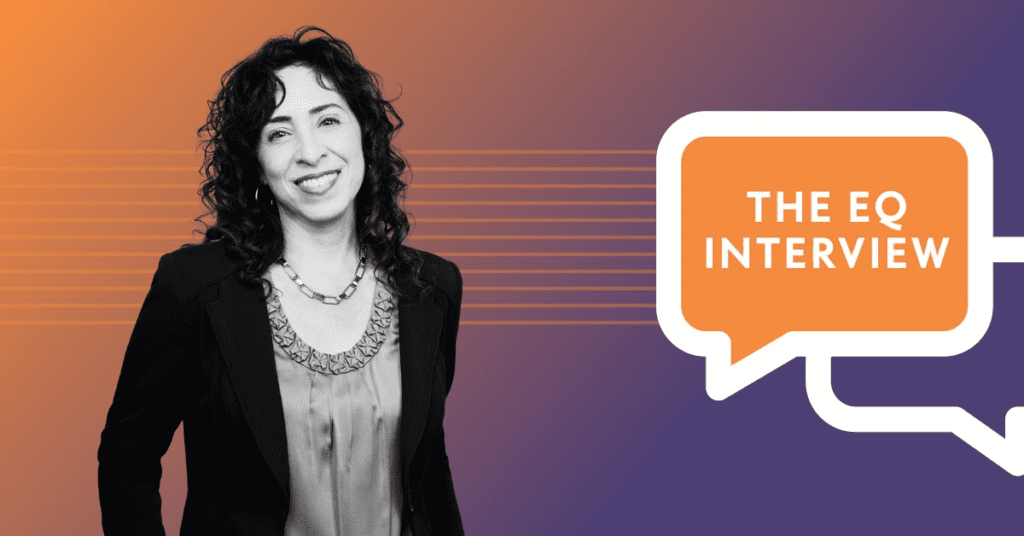Welcome to a new conversation series highlighting Equal Measure’s learnings from the field.

Senior Director Eve Weiss has more than two decades’ experience in mixed-methods research, program evaluation, philanthropy, government, academia, and private consulting. The motivation behind her work is creating systems change by identifying community priorities and advancing strategies that improve the health, safety, and well-being of historically marginalized populations. At Equal Measure, Eve directs projects focused on community health, health equity, social and economic mobility, evaluation capacity, and digital equity.
Q: You’ve worked on many evaluation projects focused on public health. We are starting to emerge from an unprecedented worldwide pandemic. How do you think approaches to public health have changed since 2020?
It’s not a particularly new insight to say the pandemic made obvious and tangible all the inequities that those of us working in public health have known forever; but one thing it also did is make them discussable.
It’s not only that the field sees these inequities now, but that we are talking about them and looking for solutions. Achieving a healthy society is not only about access to healthcare; it’s about changing inequitable systems. We’re hearing the philanthropic and the government sector use those terms now. It feels like there’s a possibility for change that didn’t exist before, and an energy to find strategies and solutions.
But pulling in the opposite direction are actions like the recent Supreme Court ruling on abortion. It will have a tremendous impact on public health and we don’t yet know what that’s going to look like. It might create a tidal wave of need. Public health workers know how to address these needs, but it will be at a volume I don’t think we’ve anticipated, in a system that’s already strapped for resources.
Q: How do you think about systems change in public health? It can be hard to look beyond the human level when there is so much need.
At Equal Measure, we most often work at the level of systems change, and it’s hard to grapple with this new, old challenge─how do we address a human-level problem? But whether it’s responding to the ruling on abortion, or the pandemic, or climate change, or seeking other forms of equity like transportation equity, it’s all part of creating a healthy society. Part of the narrative shift we need is to move from only seeing individual responsibility to accepting societal or government responsibility for fostering a healthy society, a return to the idea of the common good.
Q: Do you see equitable systems change happening in public health? What forces are helping or hindering that change?
I feel like the concept and the word equity is used now by people in power. It’s sort of suddenly trendy and I worry a little that this diminishes the power of the word, but for now, I think it’s good that I can now say, “the healthcare system is racist and built on white supremacist values,” and people in the room will nod and want to fix it. It’s no longer an astonishing thing to say, which it would’ve been several years ago when talking in a room with private foundations, but obviously there is still much work to be done.
It can be really overwhelming and daunting to talk about systems change. We do need to create a new system, but it’s helpful to approach the big idea of systems change by starting with identifying the levers for change and where we as evaluators sit in that ecosystem, and which levers we can pull, understanding we have allies out there pulling other levers. It’s a question of knowing where we can help; a lot of Equal Measure’s recent work on precursors to systems change makes tangible where we can act and what we can contribute.
Q: That’s so important because it feels like identifying where you can have the most impact, it can point the way out of feeling overwhelmed by the magnitude of the challenge ahead.
Yes. We have a lot of conversations at Equal Measure about understanding community voice, which is incredibly important for our equitable evaluation approaches. We know we’re helping pull whatever lever we can to increase equity and we’re supporting others doing the other necessary work in other parts of the system. There’s a role for everybody in making equitable change in systems.
For example, in recent work with the Robert Wood Johnson Foundation, we looked across three of their health equity programs to find some common threads and identified four areas where interventions can shift the system to become more equitable. It’s easy in public health to get siloed and hyper-focused on the ground-level work. I think our systems thinking at Equal Measure is valuable because from where we sit, we can see how common themes of inequity play out in different areas within public health and communicate that to clients who want to affect systems more broadly.